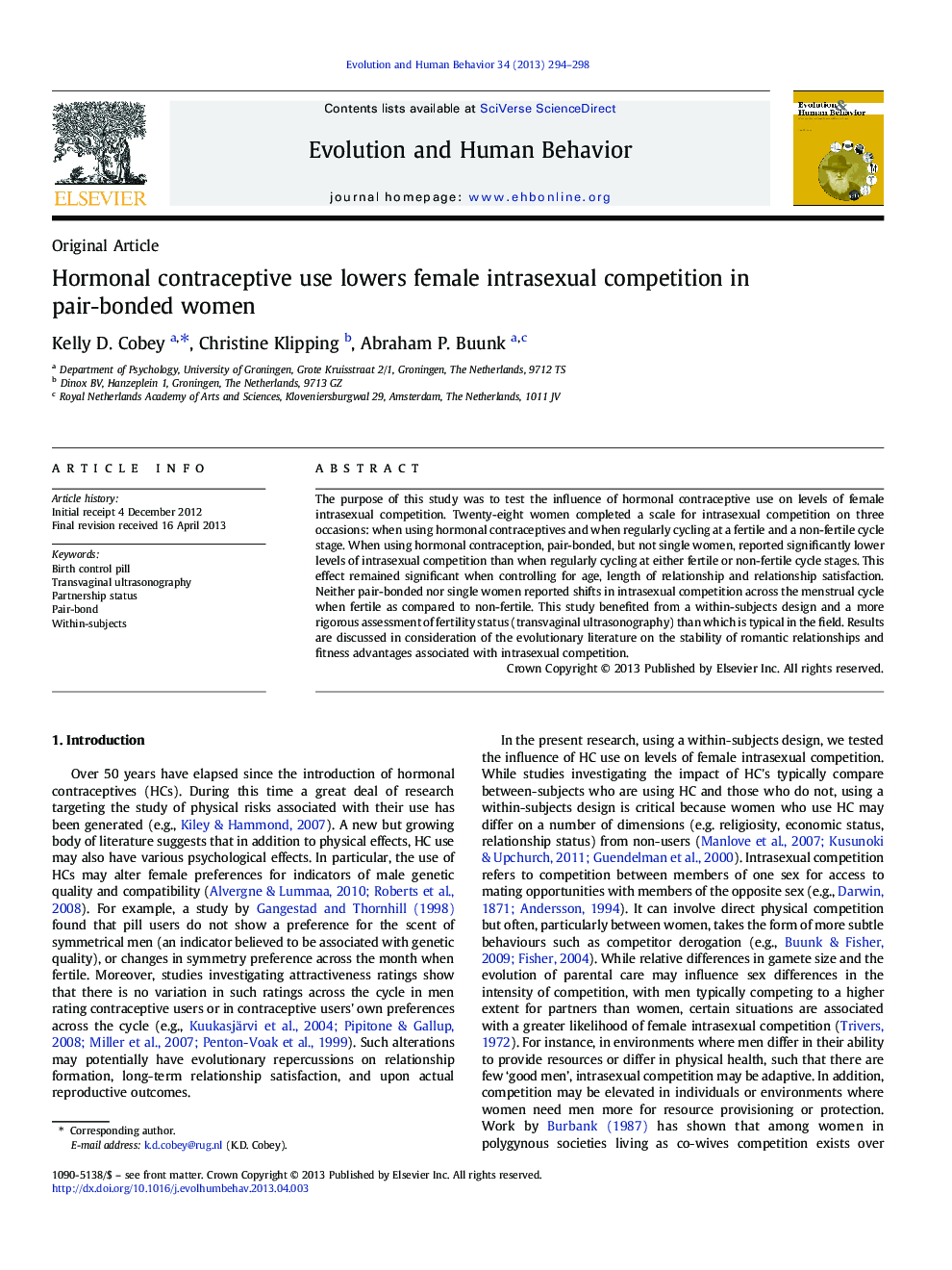| Article ID | Journal | Published Year | Pages | File Type |
|---|---|---|---|---|
| 943192 | Evolution and Human Behavior | 2013 | 5 Pages |
The purpose of this study was to test the influence of hormonal contraceptive use on levels of female intrasexual competition. Twenty-eight women completed a scale for intrasexual competition on three occasions: when using hormonal contraceptives and when regularly cycling at a fertile and a non-fertile cycle stage. When using hormonal contraception, pair-bonded, but not single women, reported significantly lower levels of intrasexual competition than when regularly cycling at either fertile or non-fertile cycle stages. This effect remained significant when controlling for age, length of relationship and relationship satisfaction. Neither pair-bonded nor single women reported shifts in intrasexual competition across the menstrual cycle when fertile as compared to non-fertile. This study benefited from a within-subjects design and a more rigorous assessment of fertility status (transvaginal ultrasonography) than which is typical in the field. Results are discussed in consideration of the evolutionary literature on the stability of romantic relationships and fitness advantages associated with intrasexual competition.
